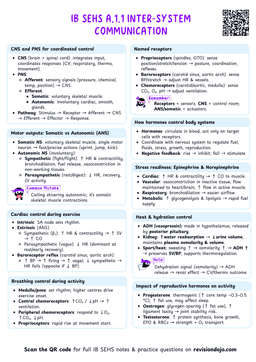Coping strategies
Coping Strategies
Coping strategies refer to the specific efforts, both behavioural and psychological, that people employ to master, tolerate, reduce, or minimize stressful events
- Coping strategies are the tools athletes use to manage stress and maintain performance under pressure.
- These strategies can be broadly categorized into problem-focused, emotion-focused, and avoidance approaches.
- Think of coping strategies as a toolbox. The more tools you have, the better prepared you are to handle any situation.
1. Seeking Support
- Problem-Focused Support: Involves seeking practical advice or solutions.
- Emotion-Focused Support: Involves seeking emotional reassurance.
Problem-focused Social Support:
- Consulting a coach for technical feedback or a physiotherapist for injury management.
Emotion-focused Social Support:
- A runner sharing feelings with teammates or family to reduce anxiety.
2. Logical Analysis and Problem Solving
- Logical Analysis: Breaking down a situation to understand it better.
- Problem Solving: Identifying goals, generating solutions, and implementing the best one.
A basketball player might analyze a missed shot, identify the error, and adjust their technique.
3. Relaxation Techniques
Relaxation Techniques
Relaxation techniques refer to a set of practices designed to deliberately reduce muscle tension and mental stress, often used by athletes to manage anxiety and optimize performance by achieving a calm state,
- Progressive Muscle Relaxation (PMR): Tensing and relaxing muscles to reduce tension.
- Breathing Exercises: Slow, deep breaths to lower heart rate and calm the mind.
Relaxation is especially useful in sports requiring precision, like archery or golf, where excessive tension can hinder performance.
4. Mental Imagery
Mental Imagery
Mental imagery is a cognitive simulation that involves representing sensory information in the mind without a direct external stimulus. It's also known as visualization.
- Visualizing successful performance or specific actions.
- Application: Athletes mentally rehearse scenarios to build confidence and prepare for challenges.
A gymnast might visualize completing a flawless routine before stepping onto the mat.
5. Thought Control
- Techniques: Interrupting negative thoughts with positive cues or actions.
- Example: Snapping a rubber band on the wrist to stop distracting thoughts.
Stopping negative thoughts is only half the battle. Always replace them with positive or task-focused thinking to maintain focus.
6. Effort Expenditure
- Channeling stress into increased effort and determination.
- Application: Athletes push harder during high-pressure moments to maintain performance.
A cyclist might dig deep during the final stretch of a race, using stress as motivation to sprint faster.
Short-Term Strategies: The Role of Distraction
- Distraction: Temporarily shifts focus away from stressors.
- Examples: Listening to music, watching a movie, or engaging in a hobby.
- Limitation: While effective for short-term relief, distraction doesn't address underlying issues.
- Distraction is best used sparingly, such as during the waiting period before a competition or to manage acute stress. Limitations include:
- Does not help in achieving goals – distraction alone is ineffective for skill development and performance improvement.
- Provides only temporary relief – after distraction, the original stressor remains unresolved.
- Over-reliance on distraction may lead to avoidance of real issues, hindering development.
Maladaptive Coping Strategies
- Disengagement: Withdrawing mentally or physically from the situation.
- Venting Emotions: Expressing frustration without addressing the root cause.
- Self-Blame: Criticizing oneself excessively, which can lower confidence and motivation.
- Avoidance strategies may provide temporary relief but often worsen the situation in the long run. Limitations include:
- Lack of training or competition can negatively impact performance and increase emotional distress.
- Can lead to alienation from coaches and teammates, reducing available support.
- Weakens motivation and self-efficacy, making it harder to persevere and achieve goals.
- Creates a cycle of distress, leading to impaired performance and reduced resilience.
Self-Talk Strategies
- Research on Self-Talk Strategies
- Weinberg & Gould (2003) developed the IMPACT acronym to guide self-talk development.
- Effective self-talk should be situation-specific, meaningful, and personally relevant.
- Findings on Self-Talk for Motor Skills
- Hardy et al. (2009) found instructional self-talk is more effective for fine motor skills.
- Motivational self-talk is less effective for gross motor skills.
- Mallett & Hanrahan (1997) Study on Sprint Performance
- Segmented a 100m sprint into three phases and assigned a cue word for each:
- Acceleration phase: "push"
- Maximum velocity phase: "heel"
- Speed endurance phase: "claw"
- Results: Race time improved by 0.26s when these cues were used.
Why Coping Strategies Matter
- Performance Enhancement: Effective coping reduces anxiety and improves focus.
- Mental Health: Coping strategies protect against burnout and emotional exhaustion.
- Skill Development: Athletes who learn to cope with stress in sports can apply these skills to other areas of life.
- How might cultural differences influence the coping strategies athletes choose?
- For example, are athletes from collectivist cultures more likely to seek social support than those from individualist cultures?


